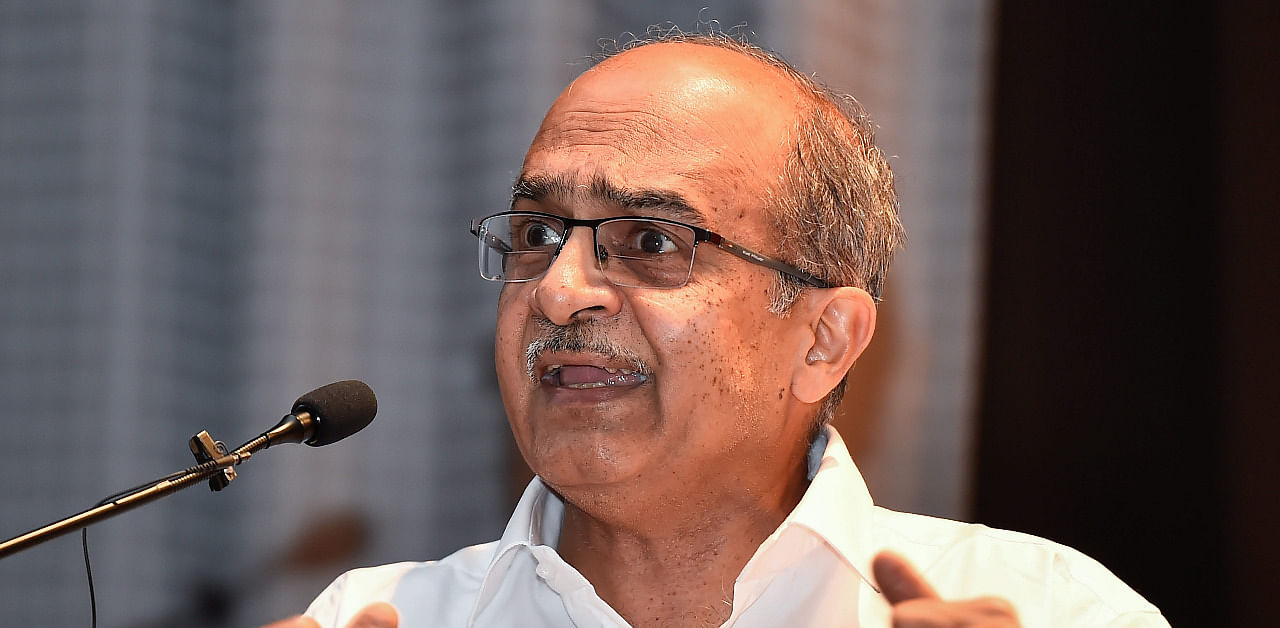
In 1967, E M S Namboodiripad, the first communist chief minister of Kerala made some statements in a press conference that judges are “guided and dominated by class hatred, class interests and class prejudices.” In a remarkably embarrassing judgment, the Supreme Court held E M S guilty of contempt, and also made references to how he “misguided himself about the true teachings of Marx, Engels and Lenin.” (E M Sankaran Namboodiripad vs T Narayanan Nambiar, 1970). In a letter written to the Kerala Law Journal later, E M S gracefully wrote, “…the function of the Court is to interpret and administer the law as it is, and not to pronounce their verdict on the various systems of philosophy in which litigants repose their faith."
On August 14, the Supreme Court held Prashant Bhushan guilty of contempt of the court. The court again failed in adequately performing its institutional function: Appreciate the law of contempt correctly. In the judgment running up to 108 pages, one can barely find any legal reasoning. The judgment is more of a compilation of excerpts from various earlier judgments and references about the magnanimity and the dignity of the court. There is no discussion on the alleged motive – which is required to be affirmatively shown and proved in any criminal proceeding. There is also no substantial discussion on how Bhushan’s tweets scandalise the authority of the court under the Contempt of Courts Act, 1971.
While failing in the correct interpretation of the law, the court also failed in another aspect: On its methodology of approaching the contempt case. During the Covid-19 lockdown and even before, the court has been criticised for its refusal and deferral to hear cases of immense constitutional significance and political urgency. For example, the challenge against the abrogation of Article 370 stands pending in the court, for more than a year. The petition against the constitutional validity of the Citizenship Amendment Act also remains untouched. Various petitions filed against preventive detention, illegal arrests and human rights abuses did not see a fast-track hearing such as the Bhushan case. This makes one question the priority of the court as an institution: Why is the Bhushan case more urgent and important to be heard in a matter of weeks, than other petitions where urgent reliefs are sought, where matters of life and death are battled?
Any contempt proceedings, in general, suffer from an inherent infirmity. By their very nature, the proceedings are an exception to the rule that no one shall be a judge in his or her own cause. As different from other types of cases where there are contesting parties and the court is an external adjudicator, in contempt proceedings, the court itself is the complainant. This leads to a peculiar situation where the court is called upon to adjudicate a case where it is significantly involved.
Apart from these flaws, the judgment has a critical impact on our constitutional democracy. As widely argued, the judgment and the way it interprets Bhushan’s speech to be contempt have the effect of stifling criticism against the courts. The episode gives an impression that the judicial institution is largely immune from disapproval and whoever questions what the court does is immediately vulnerable to criminal contempt proceedings. It also assumes that the court is granted this privilege that the other branches of the state, such as the executive or the legislature, do not enjoy.
Democracy is after all, not about universal consensus. Democracy flourishes in deliberation and disagreement, in public reason and in the ability to engage with all kinds of views. On 20 August, the court asked Bhushan to reconsider his statement, even though he has said that he will not apologise. The court should introspect about the path it has taken in the contempt of court judgement.
(Thulasi is a lawyer at the Supreme Court and Kerala High Court. She is also an Equality Fellow at the Centre for Law & Policy Research, Bengaluru)
Disclaimer: The views expressed above are the author’s own. They do not necessarily reflect the views of DH.